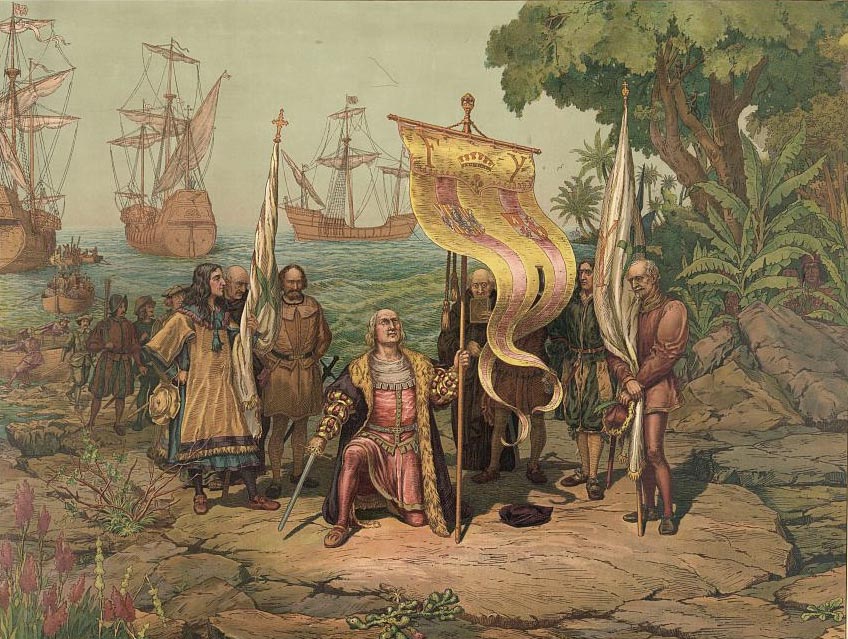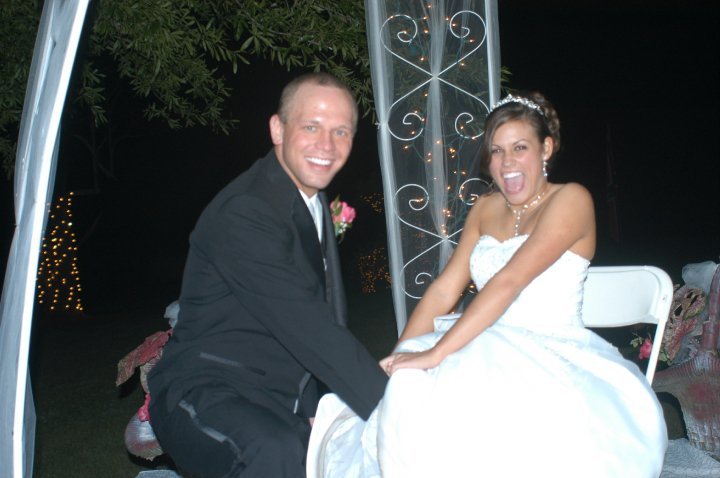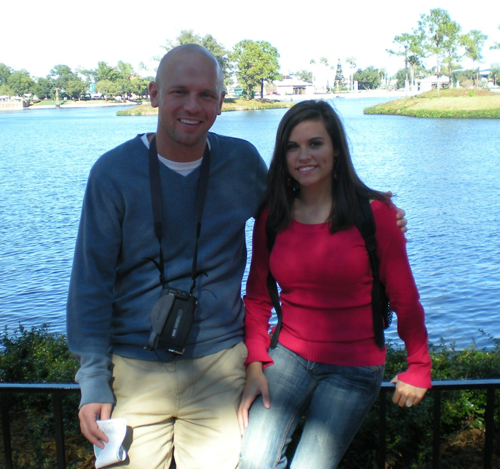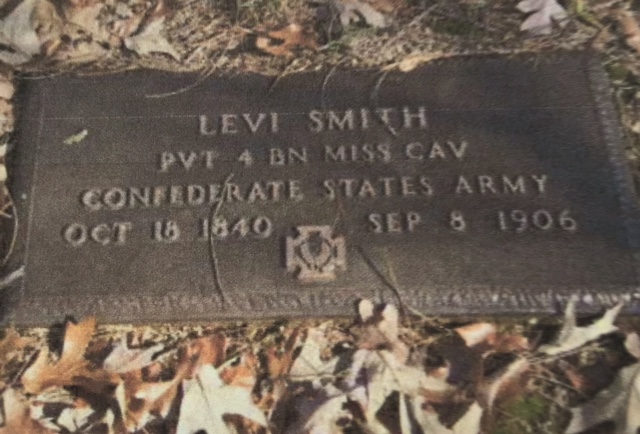Back in the 40s and 50s, a minority group thought that they had an excellent way to make society better — they would make people better. In their midst was a man who was educated, charismatic, determined, and very religious; he was a rising star in their movement. They put their plan into action in the areas in which they lived, and had some success, but they also faced serious opposition, even persecution; they were forced out of some places, they were targeted for assassination, and their leader was beaten nearly to death.
They returned to their base of operations to regroup and revise their plan. The leader had a notion to effect their desired changes in another place, but he was prevented from going. But this man had a message, and he was on a mission, and he had a vision. He pulled his team out of the place to which he was prevented from going, and they set out to do their work somewhere else. When they began having success in this new place, they again became targets of the entrenched, corrupt political system. They were arrested and jailed. But they were not without support from the ruler with ultimate authority, and after a groundbreaking event, they were freed.
The city officials asked them to leave the city, which they did. But the ultimate success of their efforts was truly epic. Their message had found fertile ground among all classes of people there, and in time an entire continent had been radically changed because of the commitment of this tiny group that endured and risked so much on the notion that they could make the world a better place by changing the way people think.
Yes, that was back in the 40s and 50s. Not the 1940s and 1950s, but the actual 40s and 50s. The place was the Middle East and Greece; the tiny group was a new religious sect that came to be known as Christians, and their leader was Saul of Tarsus, known to us today as Paul, the Apostle of Jesus Christ.
Paul and his compatriots made three missionary journeys to spread the Gospel, the second of which is of particular interest to us. As I described it above, Paul wanted to go to Asia to preach, but Acts 16 tells us that the Holy Spirit prevented him. In a vision, Paul saw a man standing across the sea, shouting to him, “Come to Macedonia and help us!” Paul immediately assembled his team and went. (By the way, the “groundbreaking event” to which I referred was an earthquake which caused enough damage to the jail that Paul and Silas were able to escape, but not before converting the jailer to Christianity.)
Why is this of particular interest to us? Because it was the introduction of Christianity to Europe, that is, to White people. Rather than send the Gospel to Asians, God first sent it to White people, our people. And we embraced it. Unlike other races and religions, the White race was not conquered into Christianity; we were convinced into Christianity. We saw its virtues, we accepted it. It changed the lives of our ancient ancestors, and continued on through the ages and generations of Europe. Christianity inspired our people to the greatest discoveries and accomplishments in the history of the world. If you are a White Christian, that is your heritage and birthright.
Reasonable individuals would suppose that the people and religion that have done so much good for the other peoples of the world should be regarded as valuable assets to humanity. It just makes sense — if something or someone is helping you, then you let it. Furthermore, you encourage others to join in and partake of whatever it is that makes people aspire to such industry and philanthropy. But in these wretched days, Christianity in general and White Christians in particular endure daily savaging from the Jewish-dominated news media and entertainment industry, from the Zionist-infiltrated government, from the godless colleges and universities, and from every other outlet of information and influence.
In the United States there must be at least hundreds, maybe thousands of groups, organizations, agencies, movements, and influential people with the stated and apparent agenda to reduce not only the influence of White Christians, but also the numbers of White Christians — via our genocide. On the Political Cesspool Radio Program, and at websites such as Faith and Heritage, the names and activities of such entities are well-documented; also, most listeners and readers are already knowledgeable in that area, so there’s no need to discuss them in this essay. But their strategy to dominating the White race is simple:
- Divide us from our history. Every week brings another town or city hauling away Christian and Confederate monuments, and any display of pride in our race’s many accomplishments is derided as “insensitive” at least, and as “racist” at worst;
- Divide us from our culture. Every Columbus Day, every Christmas season, every Thanksgiving Day, every Independence Day, is met with protests, insults, and calls for revision;
- Divide us from each other. Witness what happens whenever White college students even discuss forming a White Student Union. Every race and ethnicity has a Congressional Caucus, but a Congressional White Caucus is nigh unimaginable. Washington Post black columnist William Raspberry notoriously wrote, “It’s always illegitimate for White men to organize as White men”;
- But most of all, divide the White race from Christianity.
Why do they want to separate us from Christianity? Ultimately, because they hate Jesus Christ, and Jesus told us that since they hate Him, they will also hate us (John 15:18-25). But most immediately, because the faith of our fathers makes us effective opponents of those who desire to enslave people to debt and to governance which does not produce societies fostering industry, accomplishment, justice, safety, and courage — all of which are hallmarks of Christian culture. (At least twice in history, Christians saved Europe from Islamic conquest.) If they can purge Christianity from our hearts, then it’s only a matter of time before they can dominate and destroy us; and with their toughest opposition out of the way, they can dominate the world.
How do they go about ridding us of Christianity? By far the most effective tactic has been to convince most White people of the lie that they cannot at the same time love and advocate for our race, and be a true Christian. The lie goes something like this: If you are White, and if you love your own people, then you are a racist, and the Bible and Christianity condemn racism. As I said, it’s a lie, but enough European Americans have believed it that it has become a primary tool in our genocide. Having believed it, people are left with a choice: either hate your own people so you can be a Christian, or stop being a Christian so you can be a racist.
To what other race and religion is this applied? What other race is told that advocacy for their people is contradictory to their religion? Would anyone even dream of saying that “Rev.” “Dr.” Michael “Martin Luther” King, Jr. was wrong for being both a “clergyman” and a partisan for blacks in America? Would anyone hazard the considerable risks of telling Abe Foxman to choose between Judaism and Zionist activism? To ask the question is to answer it. And yet, for the White race, loving our people and professing Christ are supposed to be antithetical.
Which one does a White person choose — racial identity or Christianity? Well, that brings up another problem; in the current climate, neither is welcome. European Americans who love and advocate for their race are branded as White supremacists; Bible-believing White Christians are marked as intolerant bigots. It’s not much of a choice given us by those who hate us, is it? What average person wants to deal with the constant onslaught of insult and hostility? Worse still, who wants to risk losing their job, should some non-White non-Christian become sufficiently offended at their stand? Most White Americans will decide that neither prospect is very appealing, so they choose neither. And since White people are nothing without Christianity, they become ashamed of being White, and they become ashamed of being Christian, and they try at least to distance themselves from both. The results are fewer White Christians to contend for the faith and the race, an increased burden upon the remnant that remains, and an effective strengthening of those who hate us and wish us to be gone.
I’m not surprised by the lengths to which our enemies have thus far gone to secure our demise; I’ve observed and studied them long enough that I put nothing beneath or beyond them. But what galls me to no end is the people who probably are Christians, but who (like those who hate us) want to separate White people from Christianity. Rarely are White Christians encouraged by what they see happening in American churches. Formerly decent and faithful churches and major denominations are falling like dominoes, adopting unbiblical policies and beliefs harmful to God’s people in general and hostile to White Christians in particular. I don’t mean the usual liberal, apostate denominations like the United Methodist Church or the Presbyterian Church, USA (PCUSA). Churches that have traditionally been havens for White Christians are caving to political correctness. As A. W. Tozer put it, “Religion today is not transforming people; rather it is being transformed by the people. It is not raising the moral level of society; it is descending to society’s own level, and congratulating itself that it has scored a victory because society is smilingly accepting its surrender.“
This year, the Presbyterian Church in America (PCA) adopted a resolution apologizing for slavery and for opposing the “Civil Rights” movement, even though that church didn’t exist during the “Civil Rights” era. In recent years, the Southern Baptist Convention (SBC), once a stalwart specimen of traditional White religion in this country, elected a black president, apologized for slavery, apologized for its past “racism,” and in the wake of the Charleston church shooting called for the removal of the Confederate flag from the South Carolina state house grounds. Russell Moore, president of the SBC’s Ethics and Religious Liberty Commission, wrote, “The cross and the Confederate flag cannot co-exist without one setting the other on fire.” That looks a damnable lot like the damnable lie that ends in forcing White Christians to choose between their racial identity and their religion, the lie deployed by those who hate Jesus Christ and who hate us.
I want to offer another option — don’t believe the lie. There are thousands of White Christians in this country who are godly, Bible-believing Christians and who love and advocate for the White race. I’m one of them, and I know many. For us, there is no contradiction between the two propositions, no inconsistency, no conflict whatsoever. In fact, they are complementary to the point that not only can you be a Christian and love your race; not only should you be a Christian and love your race; but if you are a Christian, then you will love your race. You will feel the same willingness to sacrifice yourself for your people that Paul did: “For I could wish that myself were accursed from Christ for my brethren, my kinsmen according to the flesh” (Romans 9:3); you’ll feel the same imperative to protect your genetic line, as Abraham did when he told his servant, “But thou shalt go unto my country, and to my kindred, and take a wife unto my son Isaac” (Genesis 24:4); and you’ll fear the displeasure of God, Who said through Paul, “But if any provide not for his own, and specially for those of his own house, he hath denied the faith, and is worse than an infidel.” (1 Timothy 5:8)
For me, the reconciliation of Christianity and race realism came quite naturally. In fact, when looking back on my life up to this point I grow more thankful each day that I was born into a conservative Christian family with a mother and father who loved me enough to take me to church. From the time I was old enough to retain memory I knew that on Sunday morning we would go to worship Jesus Christ at my small, Southern Baptist congregation. On those pews I spent the early years of my life marinating in the Word of God, and it has made me a better man and a more effective advocate.
I came to accept Christ as my Savior at an early age. What was taught to me on Sunday was reinforced on weekdays at Briarcrest Christian School, a place that still holds a special place in my heart. I shudder to think what paths I might have taken had it not been for the solid foundation upon which my upbringing was built. I was very fortunate to have had the stability of consistent parents and grandparents who always let me know how much I was loved, the importance of our cultural and spiritual heritage, and the difference between right and wrong. In this nest, I flourished.
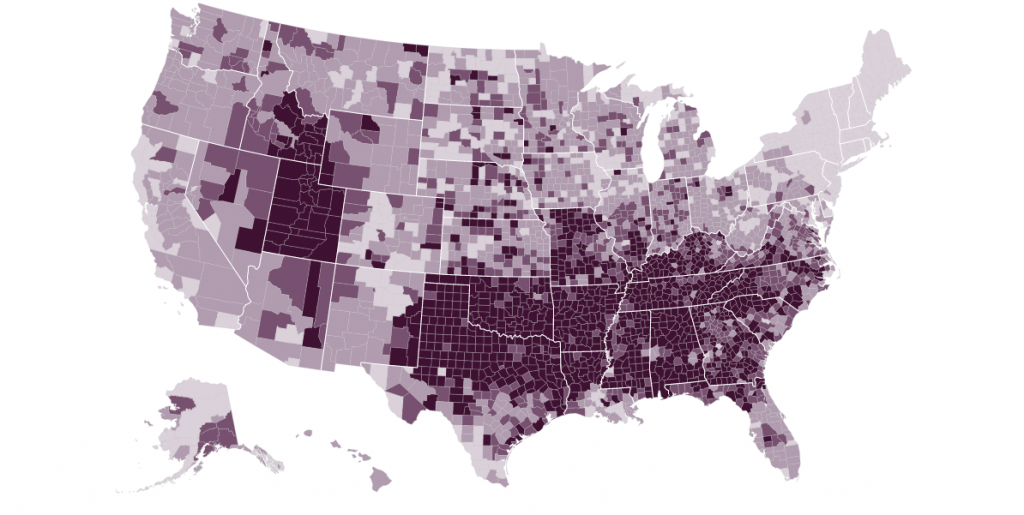
Deo Vindice! This map, presented by The New York Times, depicts where self-proclaimed Christian conservatives live by county. God richly blessed me when He gave me to a Southern family.
By the time the decision was made to switch to homeschooling during my freshman year of high school, the opportunity had presented itself for me to begin considering political opinions. I had a distant memory of my father once commenting to a man at a bowling alley in Arkansas that he planned to vote for Pat Buchanan in the 1992 Republican primaries. It just so happened that Buchanan was hosting Crossfire during my homeschooling years and, as fate would have it, he mounted another campaign in 1999. Having become a regular viewer, I enlisted in the Brigades and spent another year of growth during which I continued to develop my communication and leadership skills. During this time I also began to refine my comprehension of racial realities and make initial inquiries into the Jewish question. I was beginning to arrive at the intersection of Christianity and ethnonationalism.
When the elections of 2000 were over I was hungry and looking for another way to apply myself. In 2002 I decided to run for a seat in the Tennessee House of Representatives.
I was twenty-one years old when I initiated my candidacy and was convinced that I was going to win! We held a fairly well-attended kickoff party at a ballroom in Memphis to help generate momentum. Who introduced me before my announcement speech? None other than the pastor of my church, the only pastor I have ever known. The same man who had led me to Christ so many years earlier.
For the rest of that year that campaign consumed me. However, in spite of running a credible race and my best efforts, I was vanquished when the ballots were counted on Election Day. The bitter sting of defeat as I watched the returns remains vivid upon recollection. As a small consolation, I do vaguely recall reading at the time that I won a higher percentage of the vote than any independent candidate had ever received in a three-way race for a seat in the Tennessee State Legislature.
To this day running that campaign was one of the most profound memories of my life and, once again, I was rewarded with several building blocks and a world of experience that would prove useful to me in future endeavors. I was molded and tempered by the broken road, and for as long as I live I’ll never forget that magical year spent working with my father, mother, grandmother, pastor, then-girlfriend (now wife), and many friends to win that office.
Speaking of my wife, it should be mentioned that if not for my pastor and church, I would have never met her. Providence guided this encounter because she wasn’t even attending my church at the time, but was visiting as a guest in order to go on a week-long youth retreat with my pastor’s daughter.
Pastor came over to my house the night before the trip to ask if I’d help them haul luggage to the campsite. I said yes and showed up the next day. When I walked in and laid eyes on her for the first time I remember thinking to myself, “That’s mine.” She was absolutely stunning.
After my car was loaded up, Pastor told me that they were a little overcrowded and asked if I minded if two people rode with me. You can guess who one of the girls was. The rest is history.
Every day since then, she has stood by me and supported my efforts while I have toiled in the vineyard of political activism. She has never wavered even though the spotlight is always glaring on my work. She’s truly one in a hundred million, and I remain humbled that she took a chance on a man like me.
Want the keys to a successful marriage? Look to the Bible, which is full of godly instruction for husbands and wives:
For the husband is the head of the wife, even as Christ is the head of the church: and he is the saviour of the body. Therefore as the church is subject unto Christ, so let the wives submit themselves to their husbands in every thing. (Ephesians 5:23-24)
Husbands, love your wives, even as Christ also loved the church, and gave himself for it. . . . So ought men to love their wives as their own bodies. He that loveth his wife loveth himself. . . . Nevertheless let every one of you in particular so love his wife even as himself; and the wife see that she reverence her husband. (Ephesians 5:25, 28, 33)
And love:
Love is patient, love is kind. It does not envy, it does not boast, it is not proud, it is not rude, it is not self-seeking, it is not easily angered, it keeps no record of wrongs. Love does not rejoice in evil, but rejoices in the truth. It always protects, always trusts, always hopes, always perseveres. Love never fails. (I Corinthians 13:4-8)
Not only does she encourage my political advocacy, but she invests countless hours helping me prepare mailings and tend to the monotonous chores associated with running an organization. But much more importantly, she has given me two incredible children, Isabelle and Henry. My family is the light of my life and I owe them to the faith that brought us together.
I take my role as a husband and father very seriously. It’s enormously important to me that my children be raised in the same manner as I was, which is to be good Christian people who love their family and the ancestors whence they came. We should all have a deep respect and reverence for the beliefs of our forebears.
I want my children not only to learn about their ancestors, but to love them and be extraordinarily proud of their lineage. With this in mind I drove my family down to Thaxton, Mississippi, earlier this summer to visit the small community where my maternal grandparents were raised.
I was taken back to my childhood when I revisited the community center in which so many of our reunions used to be held. The place looked as it did in my earliest memories. The 1950 senior class photo of my maternal grandmother, Wilma McGreger, still hangs on the wall. Things don’t change much in Mississippi, which is one of the state’s most endearing qualities.
I’ve often said that I’d rather be on a dirt road in Mississippi than strolling through the streets of Times Square. That’s why those who hate us can’t understand our unwillingness to abandon our customs and symbols. This is who we are. It’s personal.
While there I took great pride in being able to visit the graves of my maternal great-grandparents. Even though my children can never know them, it still means so much to be able to teach them about who they were and raise them in the same traditions that were handed down to me. These were great people in every way that one can be great.
My daughter is five years old and my son just turned one, but they’re never too young to learn about heroes, including the ones in our own family tree who fought bravely on behalf of the Confederacy.
To be directly descended from this noble line of brave and fighting Christian men is the highest honor that I could ever receive. Other than my own wife and children, there is nothing in the world that makes me more proud.
With regard to my work on the radio, it was my vision from Day One to take the ingredients that have been so personally valuable in my life and share them with my audience. I wanted my show to serve as a leading voice that was at once Pro-Christian (God), Pro-White (Family), and Pro-South (Republic). One of the biggest keys to our success has been that ability to blend faith and folk. The positive incorporation of the Christian faith into my work makes my radio program very special to people. This belief was proven valid to me after our ten-year anniversary celebration last fall. Take a look at some of the feedback from three different individuals who attended that unprecedented conference:
- Trust me, my friends, you had to have been there. Words can’t really express what we saw, experienced and felt. But I will try to tell you anyway. As I told him personally, James Edwards scored a triumph in Memphis this past weekend. The Political Cesspool’s 10th anniversary celebration was educational, entertaining, and emotional beyond any conference in our movement I have attended. If one word could describe the experience, from start to finish, it would be joyous.
- I don’t want to belabor a point, but I have to stress how perfectly balanced this Cesspool event was. Good friends, good people, and good speakers. So much of the advocacy for our people is morbid, profanity-laden, pessimism – not so the Cesspool. Edwards’ work ignites in me the same hope I feel when looking at a sunset, or when looking out over the Appalachians. His show (and this event in particular) left me feeling inspired and uplifted. I remembered that this is my Father’s world. The rocks and seas, the skies and trees! All of it! There’s not a square inch whereupon He does not cry: “MINE”. It’s about time an organization remembered that. Thank God for Edwards and the Political Cesspool.
- James and his co-hosts have balanced issues of race, ethnonationalism, history, politics, and culture with Christian faith, which makes all the world come into focus. There is no conservatism without order, no order without structure, and no structure unless flesh and spirit are viewed as complementary of the human soul. Today, we hear too many preachers say that faith is all that matters, we hear too many nationalists say that race is all that matters, and the vast majority of young people today have been trained to believe that neither matters. James is in the vanguard of those who seek to restore balance, and in doing so, he is in lockstep with our noble forefathers, who gave us all that we have as our inheritance. Everyone is searching for identity. To us, identity means distinction. To the enemies of Christ and our kinsmen, identity means uniformity. The difference between these two poles is the difference between building civilization and destroying it.
Everyone who attended that sold-out event last year told me something similar. What made that weekend so incredible? In my opinion, it was in large part because we stood triumphantly in the defense of our people while giving all glory to God. Faith and Heritage’s own Nathanael Strickland was a speaker and did a masterful job proving exactly why Christianity and ethnonationalism go hand in hand. In doing so he provided quotes from the giants of our faith to reinforce our position.
Indeed, there is something about the proper application of Christianity that motivates and inspires our people beyond anything else that can be offered to them. It is my sincere hope that all leaders in the pro-White cause follow in the footsteps of heroes like Jan Sobieski and once again unite under the righteous banner of the cross. Embracing Christianity has been a prerequisite of success for Western man since the time of Constantine and it must be re-embraced for our people to have a future.
When my time is over I hope it will be remembered that I was an advocate for our race who wasn’t ashamed to publicly proclaim the name of Jesus Christ. In our very darkest of hours, we must also remember the words spoken so long ago at the empty tomb. “He is not here, He is risen.” It only takes one. It can happen, because it did happen. And He promised that we would do even greater things than He, because He would be working through us.
And let us not be weary in well doing: for in due season we shall reap, if we faint not. (Galatians 6:9)
TPC’s Statement of Beliefs and Principles
Political Cesspool co-host Winston Smith also contributed to this article.
| Tweet |
|
|
|
